Are you considering a career as a military officer? Crafting the perfect application letter is a crucial step in making your dream a reality. In this article, we'll break down the essentials of a compelling letter, highlighting key elements that can set you apart from other candidates. Ready to take the plunge? Let's dive in and explore the important components of your military officer application!
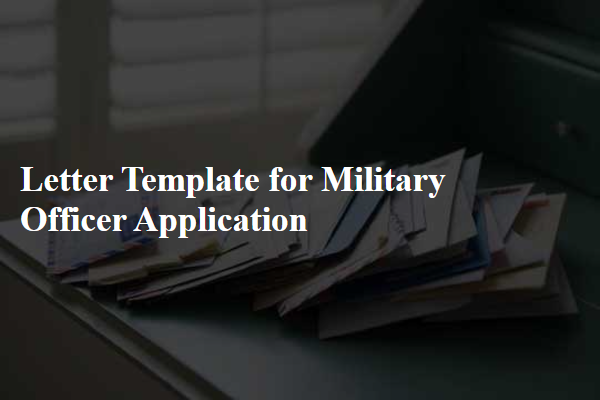
Applicant's Contact Information
The applicant's contact information serves as a crucial element in military officer application forms, ensuring efficient communication throughout the selection process. Full name (including middle initial) provides personal identification, while a permanent address (including street, city, state, and zip code) enables the office to correspond via traditional mail if necessary. Furthermore, the applicant's phone number, ideally a mobile device, facilitates quick updates and interview scheduling. Lastly, an email address is essential for electronic correspondence, with the applicant encouraged to use a professional format to reflect seriousness about the position.
Recipient's Address and Salutation
The application process for military officer positions typically begins with a formal address to the recipient, often a recruitment officer or branch-specific command, along with a respectful salutation. Precise recipient names and titles, such as Colonel John Smith, U.S. Army Recruiting Command, should be included to establish direct communication. Additionally, the address should incorporate the official location, for instance, Fort Bragg, North Carolina, ensuring clarity regarding the application's destination. Common salutations may include "Dear Colonel Smith," which sets a professional tone and reflects the discipline inherent in military communication.
Introduction and Purpose of Letter
The application for a military officer position involves a strategic display of qualifications and intentions within a formal framework. It typically begins with a clear introduction, highlighting the applicant's name, contact information, and current status, possibly including rank and relevant military experience. The purpose of the letter should explicitly state the applicant's desire to serve in a capacity that aligns with their skills, education, and values, emphasizing commitment to duty and leadership. The context of the role being applied for--such as a specific branch of the military, unique operational roles, or specialized training--adds depth to the intent, showcasing an understanding of the expectations and responsibilities that accompany such a position.
Relevant Qualifications and Experiences
A military officer application requires a focus on relevant qualifications and experience tailored to leadership, strategy, and military knowledge. Key qualifications often include a bachelor's degree in areas such as Military Science, Political Science, or Engineering, alongside training from prestigious military academies like the United States Military Academy at West Point. Valuable experience can include leadership roles in organizations like ROTC (Reserve Officer Training Corps) or participation in significant military exercises such as Operation Training Exercises. Valuable skills such as crisis management, strategic planning, and physical fitness (often measured by standards like the Army Physical Fitness Test) can enhance an application. Furthermore, practical experience through internships with defense entities or volunteering in community service that emphasizes teamwork and discipline can provide additional context to the applicant's military readiness and commitment to service.
Closing Remarks and Professional Courtesy
Closing remarks in a military officer application emphasize gratitude and professionalism. An applicant should express appreciation for the opportunity to apply, highlighting respect for the selection committee's time and consideration. Acknowledgment of the values and traditions of military service reinforces the applicant's commitment. Additionally, mentioning eagerness for further discussions or interviews indicates enthusiasm. Professional courtesy in closing, such as using appropriate titles and signatures, underscores the applicant's respect for military customs and protocols. Attention to detail in these remarks reflects the applicant's seriousness and readiness for the role.
Letter Template For Military Officer Application Samples
Letter template of military officer application for active duty enlistment.
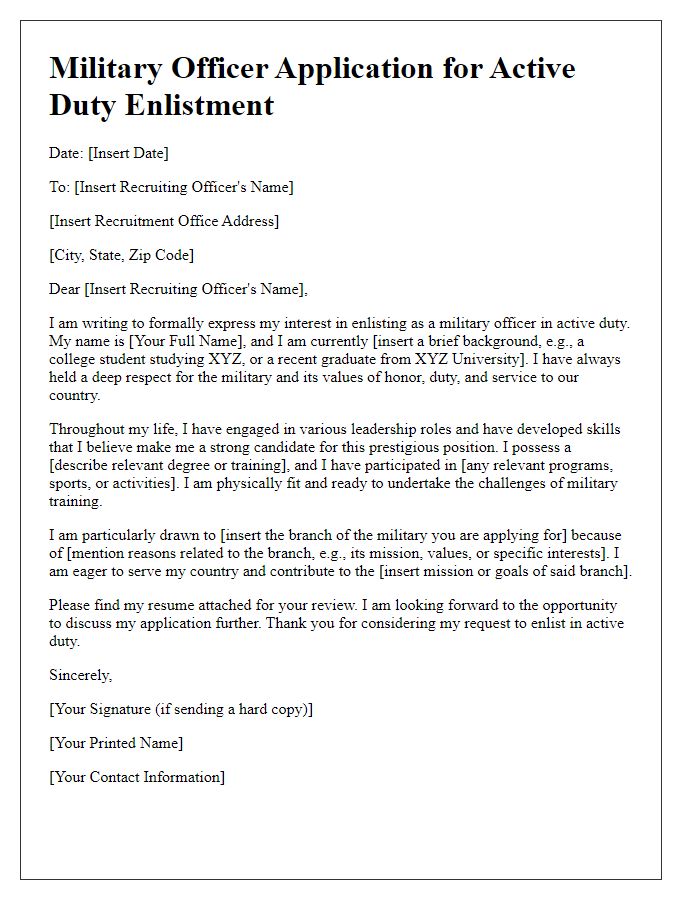
Letter template of military officer application for a specific branch of the military.
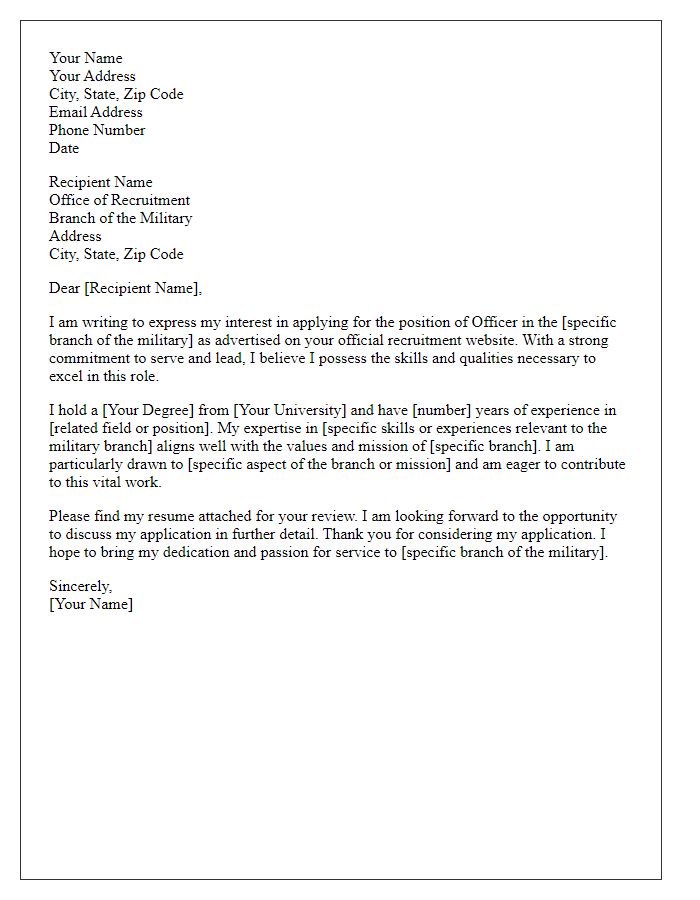
Letter template of military officer application highlighting leadership experience.
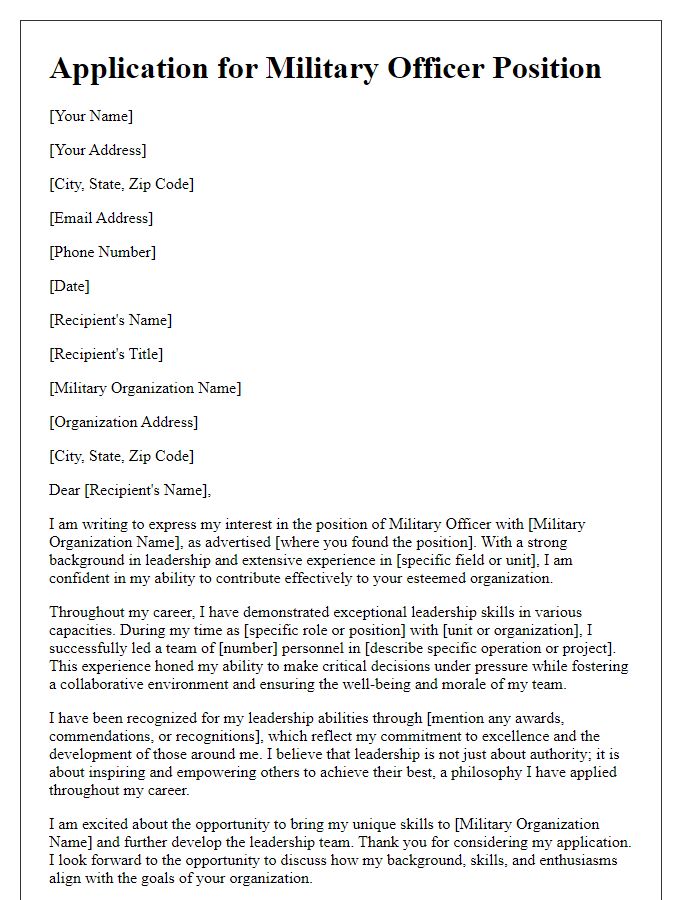
Letter template of military officer application for veterans re-entering service.
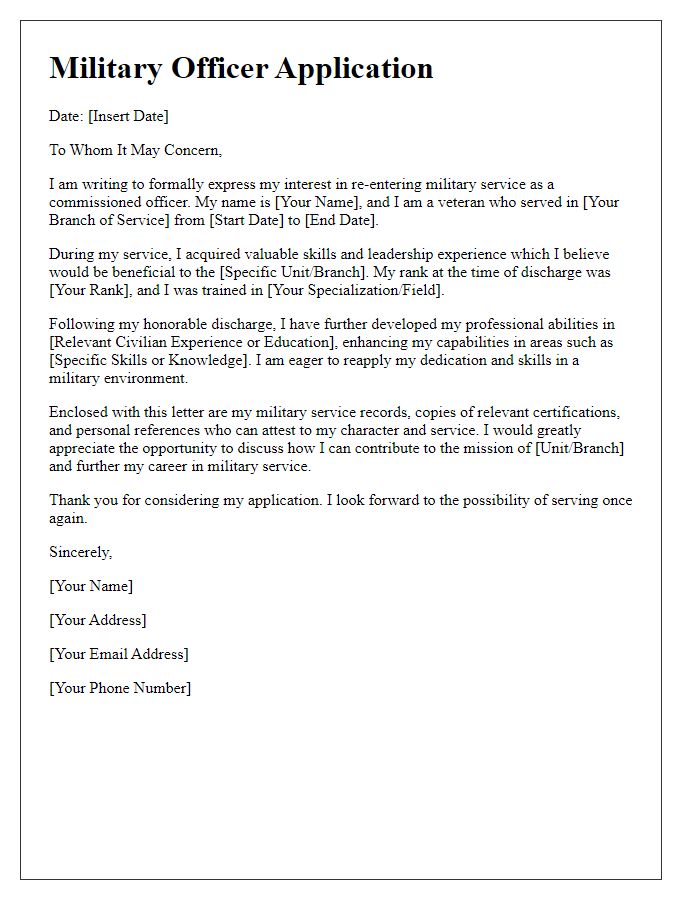
Letter template of military officer application emphasizing academic achievements.
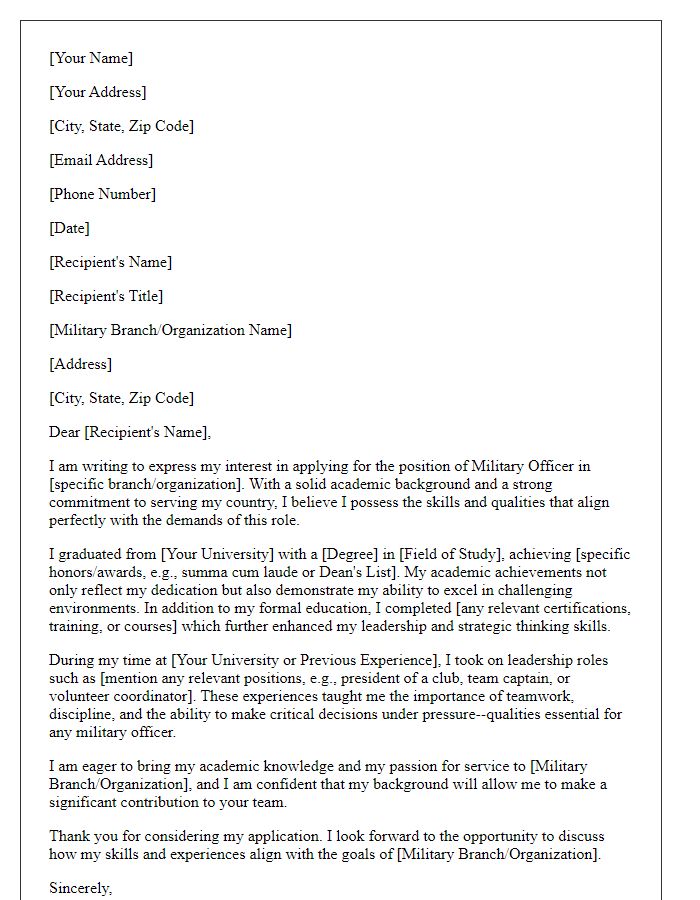
Letter template of military officer application for those seeking advanced training.
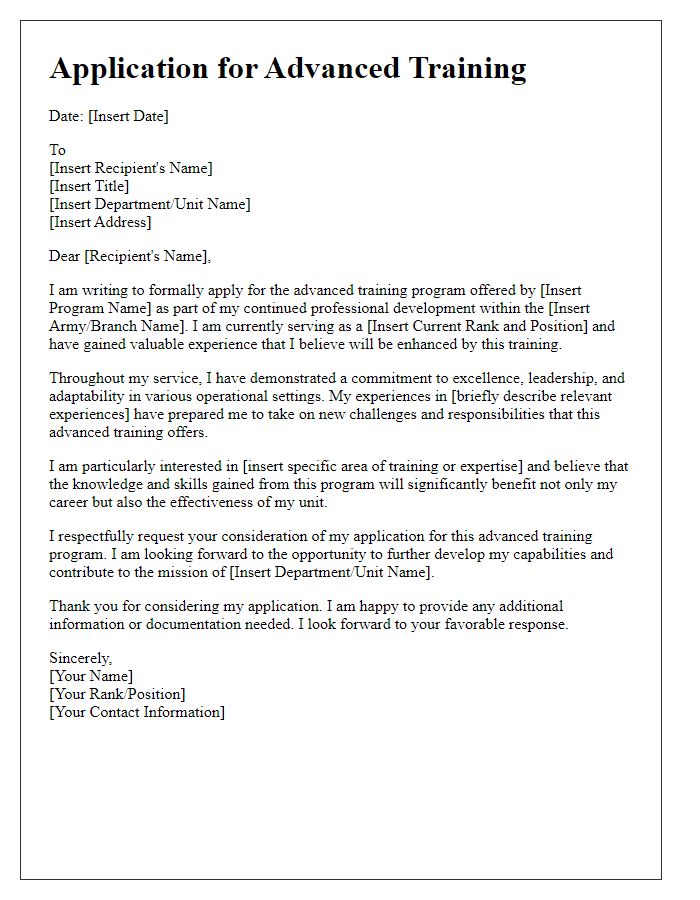

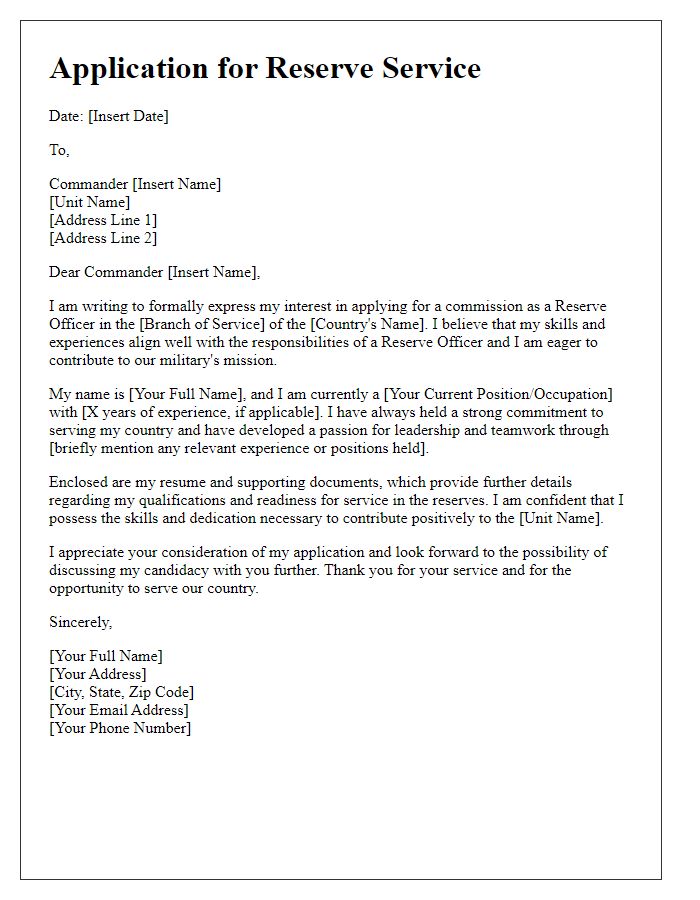
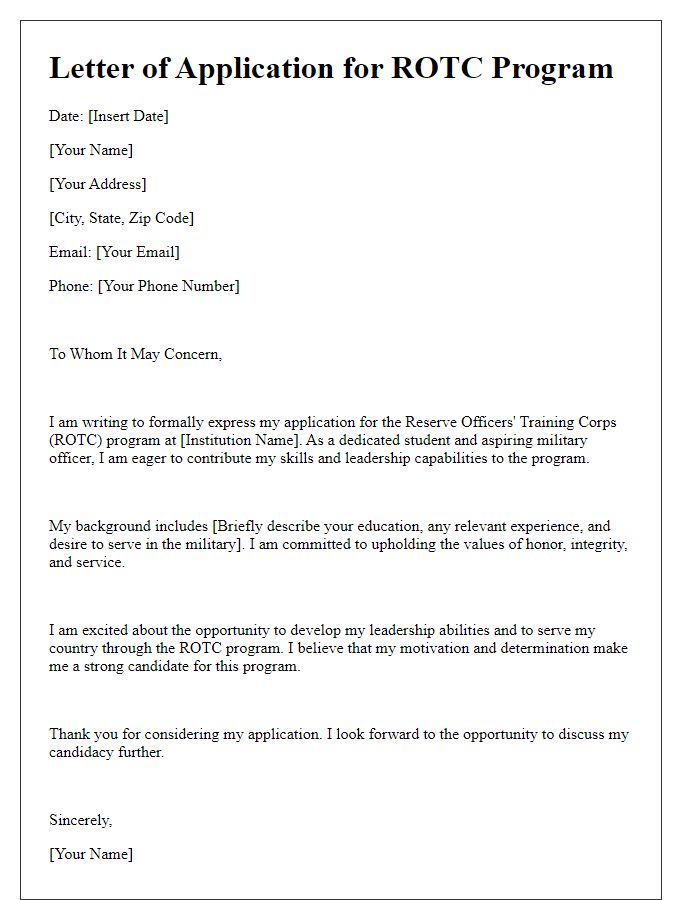
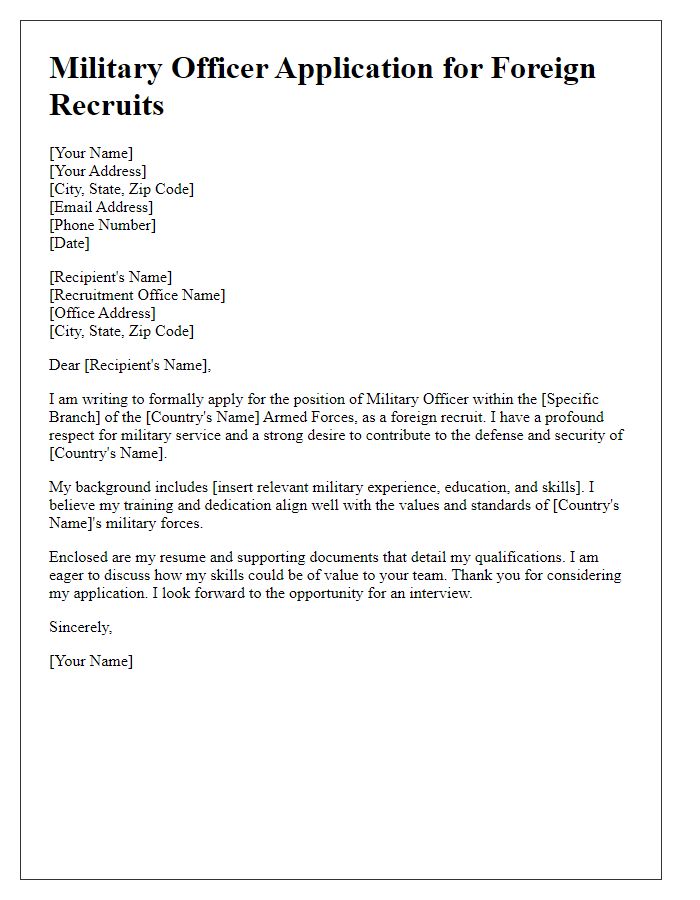
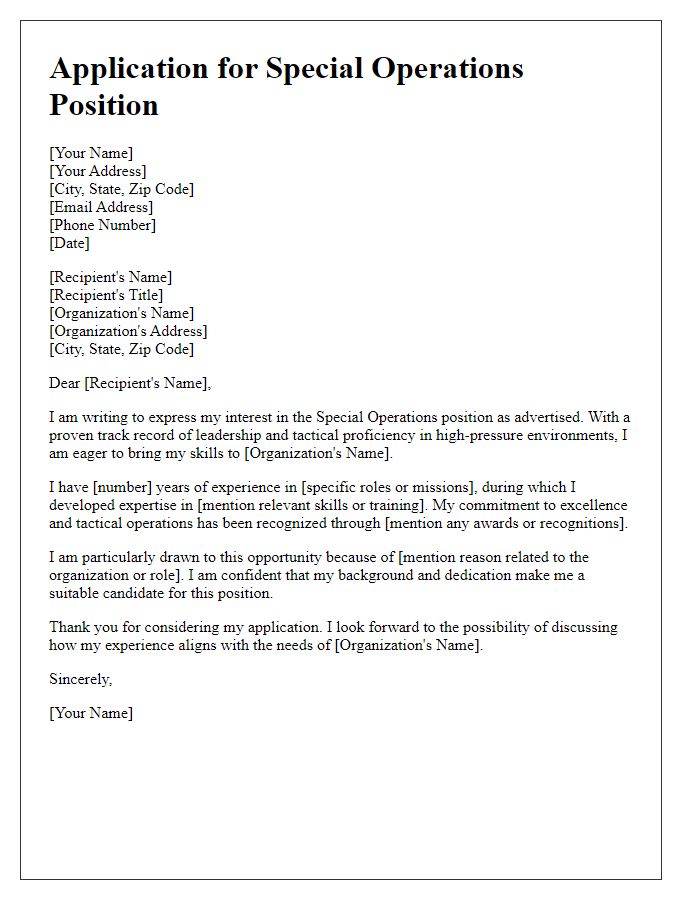

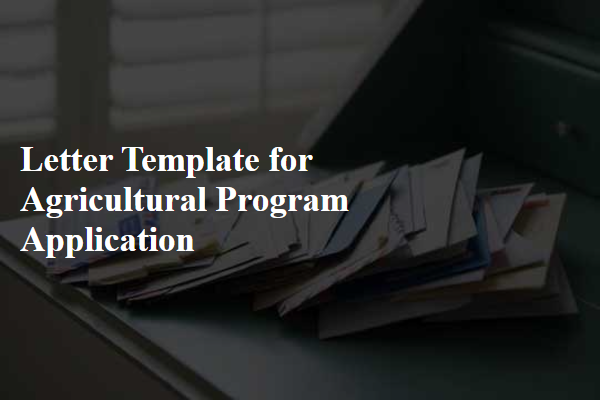
Comments